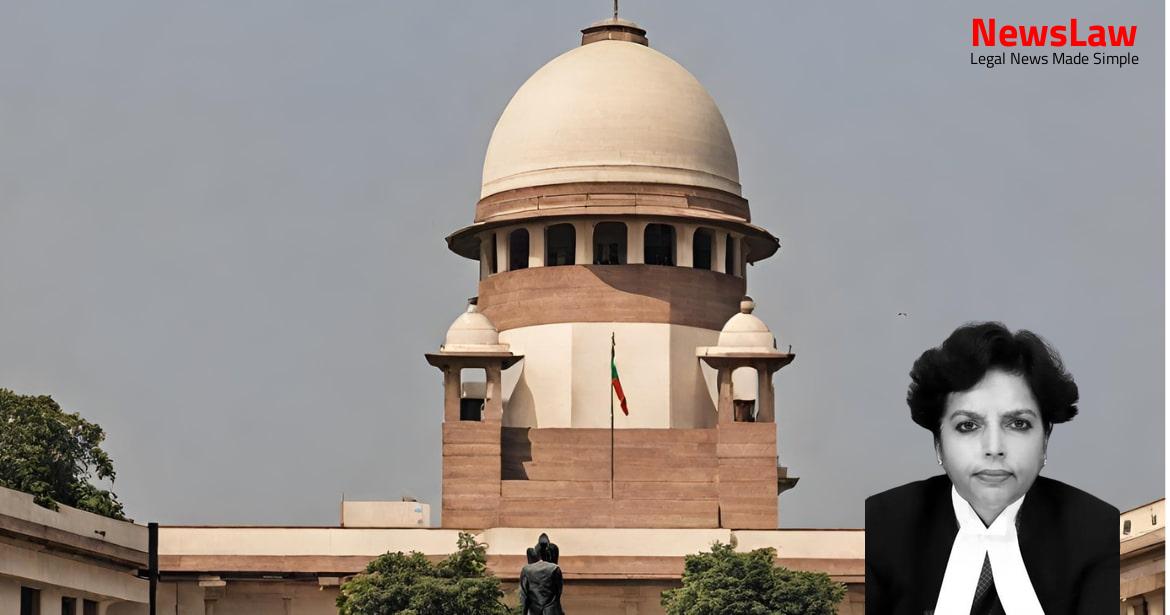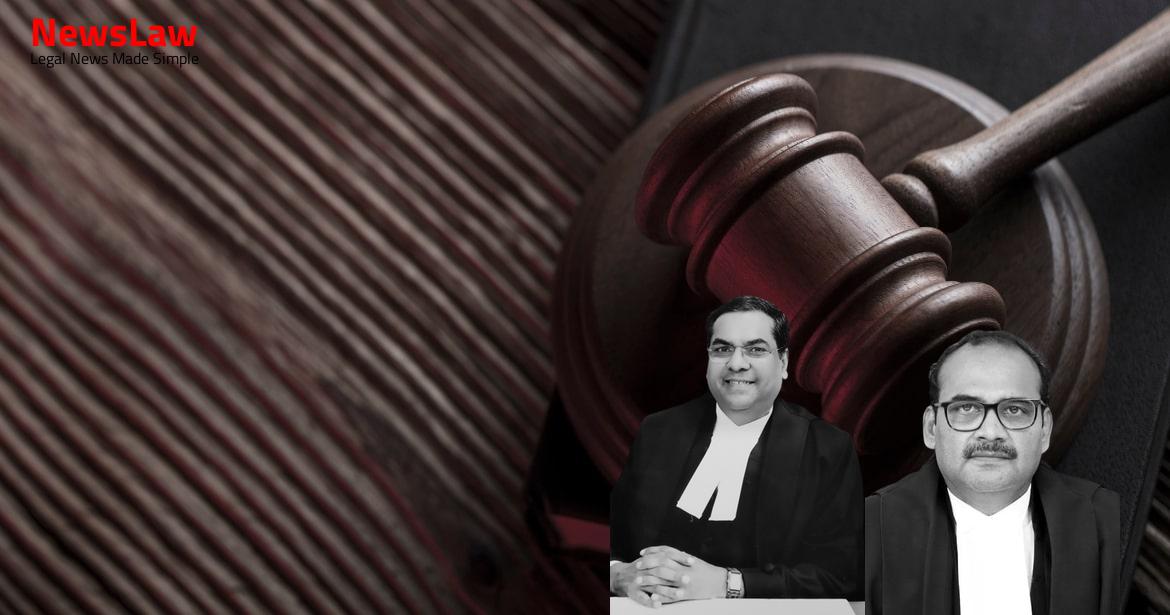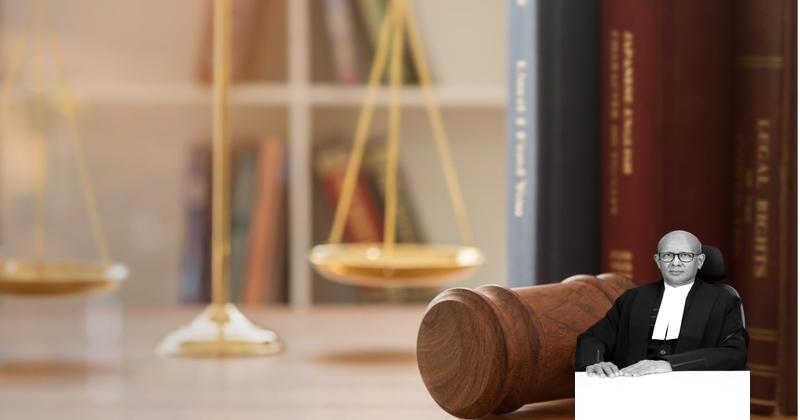The recent court judgment discussed in this summary delves into a landmark legal analysis regarding the granting of bail in a high-profile case. The court’s meticulous examination of factors such as the gravity of the offense, the role of the accused, and their criminal history establishes a noteworthy precedent in the realm of legal proceedings. This summary focuses on the court’s detailed scrutiny and evaluation of various aspects crucial in determining the eligibility for bail in serious criminal cases.
Facts
- Appellant’s nephew was seriously injured during the incident
- Informant PW 1’s evidence recorded
- Appellant questioned about why first respondent was not named in the FIR
- Charge-sheet submitted against accused including first respondent for various sections of IPC
- First bail application of first respondent dismissed on 29 July 2021
- First respondent moved High Court for bail resulting in impugned order dated 4 August 2022
- Charges framed, case committed to Sessions Court as Sessions Trial No 574 of 2020
- Abdul Khaliq died on spot, Abdul Majid died on way to hospital
- Charge-sheet against eight accused, first respondent’s name added later
- Appellant moved High Court under Section 482 of CrPC for expedited trial
- Single Judge of High Court directed first respondent’s release on bail
- Postmortem reports of deceased mentioned injuries and causes of death
- Allegation in FIR about accused firing at appellant and his sons
- FIR registered against ten accused persons, first respondent’s role emerged during investigation
- On 7 May 2022, the High Court directed the Sessions Court to conclude the trial within six months.
- While granting bail, the Single Judge noted that the second bail application was previously dismissed by the Sessions Court due to the seriousness of the offence and prior enmity between the factions.
Also Read: Balancing Power and Transparency: Electoral Bonds Struck Down, Disclosure Mandated
Arguments
- Two sons of the appellant were murdered during the incident.
- The role of the first respondent surfaced in statements recorded under Section 161 CrPC.
- The appellant, in his deposition as PW1, pointed out the involvement of the first respondent in the incident.
- Due to the serious nature of the offense, bail should not be granted, especially since the role of the first respondent has been mentioned by multiple witnesses in their statements under Section 161 CrPC in the counter case filed by the first respondent’s wife.
- The FIR in Case Crime No. 361 of 2020 also implicates the first respondent.
Also Read: Recall of Resolution Plan Approval: Legal Analysis
Analysis
- The High Court failed to consider the seriousness and gravity of the offense while granting bail.
- The appellant’s sons were murdered as a result of firearm injuries.
- The first respondent is avoiding the trial and seeking repeated adjournments.
- The High Court’s disposal of bail applications was criticized for lacking detailed reasoning.
- The Court emphasized the need to consider the seriousness of the crime, role of the accused, witness tampering likelihood, accused’s availability for trial, and criminal antecedents while granting bail in serious criminal cases.
- The High Court granted bail without due regard to the nature and gravity of the crime, the role attributed to the first respondent, recovery of firearms, postmortem reports, and criminal antecedents of the first respondent.
- The duty to consider the circumstances of the case cannot be obviated by setting down legal formulations.
- In the case of Mahipal v. Rajesh Kumar, a two-Judge Bench observed a specific point.
- In the case of Aminuddin v. State of Uttar Pradesh, a two-Judge Bench of the Court allowed the appeal filed against the judgment of the High Court granting bail.
- The first respondent, despite being granted bail, has failed to cooperate in the expeditious disposal of the trial as directed by the High Court.
- The first respondent has consistently remained absent from the trial and sought repeated adjournments, leading to delays in concluding the cross-examination of witnesses.
- The presence of the first respondent at the scene of the incident is indicated by the cross case alleging his injury during the investigation.
- The first respondent has already spent about two years and two months in custody.
Decision
- The pending application, if any, is disposed of.
- The first respondent is granted two weeks to surrender.
- Observations made in the order will not affect the merits of the trial.
- The appeal is allowed, setting aside the bail order of the first respondent.
Case Title: AJWAR Vs. NIYAJ AHMAD (2022 INSC 1054)
Case Number: Crl.A. No.-001722-001722 / 2022



